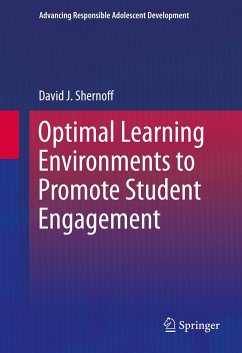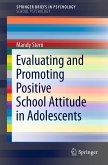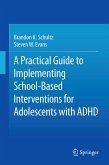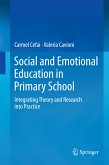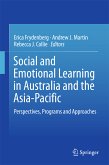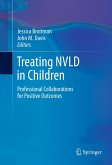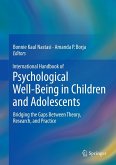- Engagement as a primary framework for understanding educational and motivational outcomes.
- Measuring the malleability, complexity, multidimensionality, and sources of engagement.
- The relationship between engagement and achievement.
- Supporting and challenging: the instructor's role in promoting engagement.
- Engagement within and beyond core academic subjects.
- Technological innovations on the engagement horizon.
Optimal Learning Environments to Promote Student Engagement is an essential resource for researchers, professionals, and graduate students in child and school psychology; social work; educational psychology; positivepsychology; family studies; and teaching/teacher education.
Dieser Download kann aus rechtlichen Gründen nur mit Rechnungsadresse in A, B, BG, CY, CZ, D, DK, EW, E, FIN, F, GR, HR, H, IRL, I, LT, L, LR, M, NL, PL, P, R, S, SLO, SK ausgeliefert werden.
Howard Gardner, Hobbs Professor of Cognition and Education, Harvard Graduate School of Education, and author of Frames of Mind and Multiple Intelligences
---
"In this singularly erudite, comprehensive, and integrative work, David Shernoff presents a compelling vision for how schools can optimize the engagement of youth in learning and achievement and promote their positive development. This book provides scholars, educators, and policy makers with a unique conceptual template for enhancing the lives of diverse young people and for strengthening the schools and communities of our nation."
Richard M. Lerner, Bergstrom Chair in Applied Developmental Science and Director, Institute for Applied Research in Youth Development, Tufts University, and Author of Liberty: Thriving and Civic Engagement Among America's Youth
---
"This is a valuable book! Schools are not living up their potentials and a major reason is their failure to truly engage students. Shernoff's book provides a comprehensive and compelling account of the critical role of motivation and engagement in learning. The chapters present the research on every aspect of the topic: how engagement effects achievement; how effective teachers sustain high engagement; the design of classroom activities to maximize motivation; and the ways that new model programs, successful alternative schools, and after-school programs facilitate absorption in learning."
Reed Larson, Professor of Human Development, University of Illinois, Champaign-Urbana, Recent President of Society for Research on Adolescence, and Editor-in-Chief (with Lene Jensen) of New Directions forChild and Adolescent Development
---
"Shernoff's book on learning environments and student engagement is a good resource for school and district leaders to establish the why of optimal learning environments-the theoretical underpinnings of student motivation, engagement, and learning. It also gives concrete guidance in the what and how for considering strategies for engagement in typical classrooms, as well as a brief discussion of alternative, out-of-school, and technology-based programs."
Susan Catapano & Jeremy Hilburn
PsycCRITIQUES
February 24, 2014, Vol. 59, No. 8, Article 7

